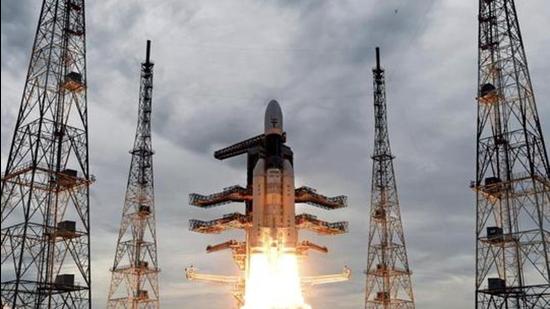Isro likely to miss 3 key missions despite reducing targets
“The three planned missions appear unlikely this year,” a senior scientist at Isro said on condition of anonymity.
Despite the Indian Space Research Organisation (ISRO) reducing its launch target from 16 to five projects in 2021 in view of the Covid-19 pandemic, the agency is likely to miss some critical missions, according to people aware of the matter.

The space agency was to launch two earth observation satellites, one navigation satellite, one purely scientific mission, and the first unmanned flight under the Gaganyaan mission as per its revised targets for the year.
Two of the missions were to use the new small satellite launch vehicle in two development flights. Isro qualifies a launch vehicle after two successful development flights. The small satellite launch vehicle or SSLV will mostly be used for commercial launches, according to people aware of the matter.
There have only been two launches this year – the purely commercial PSLV C-51 launch in February carrying Brazil’s earth observation satellite Amazonia-1 and the GSLV-F10 mission in August carrying an Indian earth observation satellite EOS-03 that failed.
To be sure, the space agency has plans for three more missions before the end of the year, including the first development flight of the SSLV. The other two will use India’s workhorse PSLV to launch two earth observation satellites EOS-04 and EOS-06.
“The three planned missions appear unlikely this year,” a senior scientist at the agency said on condition of anonymity.
Ajey Lele, senior fellow at Manohar Parrikar Institute for Defence Studies and Analyses, said: “It is critical for Isro to quickly conduct the SSLV launches; they have been delayed for far too long. It will be a commercial satellite and some of the slots even in the development flight has been booked by foreign agencies. If the launches do not happen soon, they might move to other launch service providers and Isro will lose market.”
The space agency will also miss the launch of the navigation satellite NVS-01 that is to replace one of the satellites in India’s own regional GPS-like system NAVigation with Indian Constellation (NavIC).
The NVS-01 satellite is to replace the IRNSS-1G satellite that was launched in 2016 and has a mission life of 12 years. Among the still functioning satellites in the constellation, the earliest to be launched is IRNSS-1B launched in 2014 with a mission life of 10 years.
“This is likely to be one of the satellites where the atomic clock malfunctioned,” said Lele. There was no confirmation from Isro. All three atomic clocks – one main and two back-ups – on the first satellite of the constellation IRNSS-1A failed, prompting the space agency to launch a replacement satellite IRNSS-1H (which failed) and IRNSS-1I (which is currently working). Officials from the space agency also confirmed that the failure of the atomic clock has affected more satellites.
There was no official response from Isro on the matter.
“The pandemic has hit the space agency hard, making it difficult to integrate components coming in from various parts of the country. These delays are important in terms of missions like NavIC that needs a constellation of satellites; if the entire system is not up and running we are not utilising the life-years of the other satellites. However, when it comes to purely scientific missions such as the Gaganyaan, the delay does not have much impact. In case of Adiya-L1 the only challenge is that most of the hardware was ready but it could not be launched. After AstroSat’s good data, many scientists are awaiting data from the solar mission,” said Dr SM Ahmed, head of central instruments laboratory at University of Hyderabad and formerly a scientist with the Vikram Sarabhai Space Centre who worked on Chandrayaan-1 mission.
“The pandemic has affected missions world over; US’ artemis mission is also behind schedule,” Dr Ahmed added.
The NVS-01 replacement satellite was to be launched on board Isro’s Geosynchronous Launch Vehicle or GSLV, the same one that failed this August. Four of the fourteen GSLV missions so far have failed. In comparison, only two of the 53 PSLV missions have failed.
The space agency had also targeted the first of the two unmanned flights under the Gaganyaan mission for 2021, but it is unlikely to happen this year.
“There have been delays in most missions of Isro, there are several more tests that need to be done before even the unmanned mission. The space agency also needs to launch two relay satellites. Another much awaited mission of Isro is the solar mission Aditya-L1. The other scientific Isro missions have produced good data, and the scientific community is waiting for it,” said Lele.
Get Current Updates on India News, Lok Sabha Election 2024 live, Infosys Q4 Results Live, Elections 2024, Election 2024 Date along with Latest News and Top Headlines from India and around the world.




